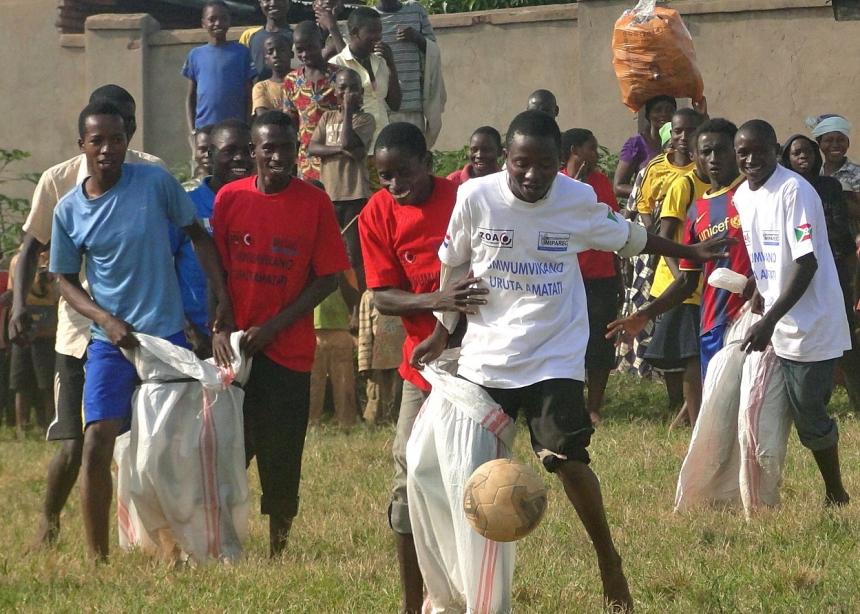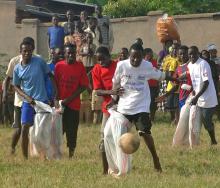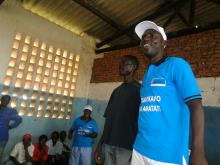As political unrest brings increased violence in Burundi, partners of Mennonite Central Committee (MCC) continue building on two decades of peacebuilding to encourage peace.
The current political unrest began in the spring 2015, when President Pierre Nkurunziza’s political party nominated him for a third term. Some Burundians believed his nomination was unconstitutional, sparking protests that became violent.
After the president won the election, members of the opposition movement were targeted for imprisonment, torture and assassination. Independent radio stations were destroyed, allowing rumours and inaccurate information to be disseminated.
However, sprinkled like salt across Burundi are peacebuilders who have been trained at MCC-supported events during the Burundi Civil War in 1993-2005 and at the Great Lakes Peacebuilding Institute since 2004.
Some peacebuilders share their knowledge with members of hundreds of community peace committees that have spread across Burundi since 1994. Peacebuilders and the thousands who have been trained by them have worked diligently during this situation to keep violence and ethnic conflict from escalating.
Working with youth from opposing political parties
Emmanuel Ntakirutimana is one of those peacebuilders, having studied at the 2011 institute with assistance from MCC. He now works in Cibitoke, a western region where conflicts between youth from different political parties have caused tension in the community.
Since 2013 he has been coordinating a project that brings youth together to learn such practical skills as conflict transformation and prevention, nonviolent communication, how to manage rumours, tolerance and mutual respect. Youth meet twice a week with their local administrator to discuss problems in the community and look for positive solutions.
However, during this year’s election period, members of the Ibonerakure, the youth wing of the ruling party, started placing a white mark on each house where a Tutsi family lived. This caused people to fear that the political dispute would become an ethnic dispute, pitting Hutus and Tutsis against each other as they did during the civil war.
A rumour spread quickly that the Ibonerakure-associated youth were working with a rebel group to prepare a Tutsi massacre. People believed that a certain Rwandan businessman was using his warehouses to hide machetes and gasoline in order to attack Tutsis and burn their homes.
This rumour caused numerous people to flee Cibitoke, but Ntakirutimana saw that this rumour would be easy to verify. He sent youth from his group to talk to this businessman, who gave permission for the group to go through his warehouses to verify that he wasn’t hiding anything. Discussion group members were able to calm the community, confirming that the rumour was not true.
“Rather than dividing over political values or ethnicity, they are choosing to unite to protect their community, understanding that everyone has the right to live even if they have different ideas,” says Ntakirutimana.







Add new comment
Canadian Mennonite invites comments and encourages constructive discussion about our content. Actual full names (first and last) are required. Comments are moderated and may be edited. They will not appear online until approved and will be posted during business hours. Some comments may be reproduced in print.